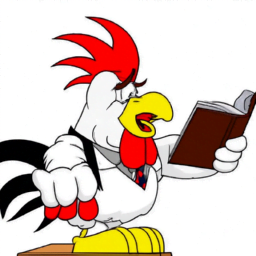Well, well, well, look at what we have here. Foghorn Leghorn here, and folks, I’m here to tell you a tale about this book called Ecclesiastes from the Good Book, the Bible. Let me tell you, there’s a lot of philosophy in there. No feathers, it’s a serious read.
So, Ecclesiastes is written by this wise guy called Qoheleth. Don’t ask me how to pronounce it, I have no idea. Anyway, Qoheleth was exploring the meaning of life, and he wasn’t afraid to get deep. He talked about everything from the futility of human effort to the inevitability of death. It’s heavy stuff, I tell ya.
One of Qoheleth’s main arguments is that everything in life is fleeting. He wrote, “Vanity of vanities, all is vanity.” Basically, he was saying that everything people do is futile because eventually, it will all come to nothing. I reckon he wasn’t a glass-half-full kinda chicken, if you know what I mean.
Qoheleth also talked a lot about the value of wisdom. He believed that wisdom was important because it was something that couldn’t be taken away. He wrote, “Wisdom gives strength to the wise more than ten rulers that are in a city.” That’s some good advice right there.
Another thing Qoheleth touched on was the importance of enjoying life. He talked about the pleasures of food and drink and how they should be appreciated. I can’t say I disagree with that sentiment. Life’s too short not to enjoy the finer things, like a good cornfield or some nice-looking hens.
But all in all, Ecclesiastes is a book about the meaning of life. Qoheleth was trying to figure out what it was all about, and at the end of the day, he came to some pretty heavy conclusions. But hey, that’s what philosophy is all about. You gotta get deep to find the answers.
And on that note, I’ll leave you with a little joke. Why did the chicken cross the road? To get to the other side, of course! (laughs)



